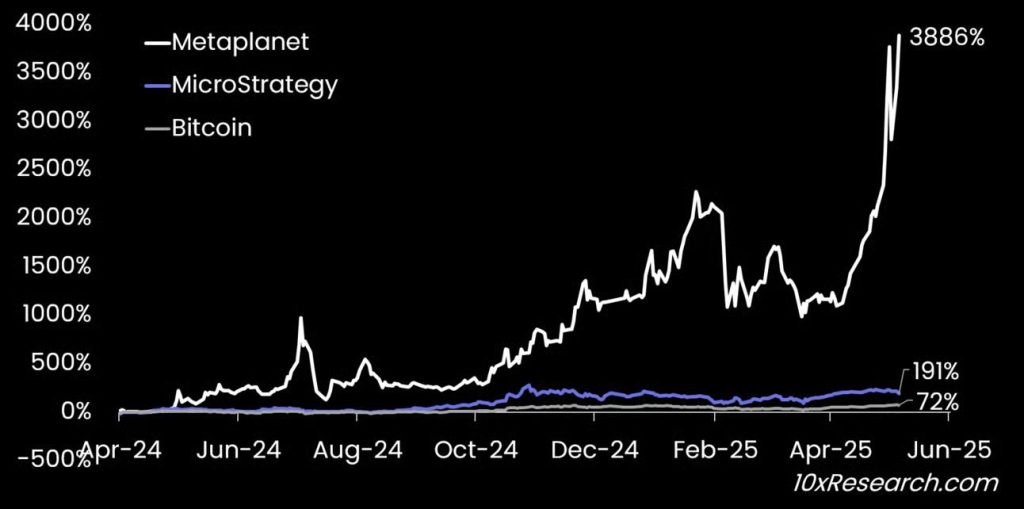closeup of a computer laptop with a tax form on screen, concept of online tax filing (3d render)
getty
Google, Meta, and several tax prep companies, including H&R Block and TaxAct, are fielding an escalating number of U.S. lawsuits alleging that they allowed tracking pixels to unlawfully collect taxpayers’ confidential information as they filed their federal income tax returns online.
The claims, which were first reported in November 2022 by investigative news outlet The Markup, have raised concerns about potential common law privacy violations, federal wiretapping violations, and violations of the IRC.
The IRC requires federal income tax returns and tax return information to remain confidential under section 6103(a), unless an exception applies. There is a third-party exception (section 6103(c)) that obligates third parties that receive return information to use it only as the taxpayer authorizes.
“Persons designated by the taxpayer under this subsection to receive return information shall not use the information for any purpose other than the express purpose for which consent was granted and shall not disclose return information to any other person without the express permission of, or request by, the taxpayer,” the statute says.
There are questions about whether the information allegedly captured by Google and Meta might violate the IRC’s criminal disclosure statute, section 7216, and whether taxpayers can seek civil damages under section 7431(a)(2).
Former National Taxpayer Advocate Nina Olson extensively discussed that question after the story broke and said that taxpayers might be hamstrung by mandatory arbitration clauses located in the prep companies’ terms of use.
The claims have also caught the attention of a group of Democratic lawmakers, who investigated the companies and are now calling on the IRS to develop a free, direct e-file system in which taxpayers can bypass third-party tax return prep companies and directly file their returns with the IRS.
Doing so would bring the United States into alignment with its international peers, but it would require significant changes to the agency’s customer service and online service capabilities.
Pixel Litigation
Since the story in The Markup was published, there have been several lawsuits filed around the country. A recent filing against Google sheds some light on the types of claims that plaintiffs are pursuing.
Google is facing a proposed class action lawsuit alleging violations of taxpayers’ privacy when the company collected sensitive financial data via tracking pixels embedded on the websites of major tax return prep companies like H&R Block, TaxAct, and TaxSlayer (Smith v. Google, 5:23-cv-03527 (N.D. Cal.)).
Seattle, USA – Aug 19, 2019: The new Google building in the south lake union area at twilight.
getty
As customers completed their tax returns, the pixels allegedly collected the return data — including income, refund amounts, filing status, and scholarship information — and transmitted it to Google. The tech giant then used the information without consumers’ consent in order to improve its ad business, violating users’ privacy and state and federal wiretapping laws, according to the lawsuit.
The proposed class action suit was filed in California federal district court by a woman who used H&R Block’s website to file her tax return online. The tracking pixel at the heart of the complaint is a business tool that belongs to Google Analytics. The company collects data from websites and apps and aggregates the information into reports for business owners to gain a better understanding of how users interact with the businesses’ online platforms.
The pixel is an invisible bug added to the code of a website’s page. It collects pseudonymous information about users’ interaction with that page. Website owners can customize what kinds of data the pixel collects.
As the data is collected, it is transmitted in real time to Google. The pixel is a default part of Google Analytics, the complaint charges, and the data cannot be changed after it is processed and stored in a report, the lawsuit notes.
TaxAct and TaxSlayer allegedly automatically sent the dollar amounts of taxpayers’ adjusted gross income and tax refunds to Google, according to the complaint. The pixels may have also collected users’ email addresses, filing status, information about the buttons that they clicked, and the year of their return. According to the lawsuit, taxpayers had no way of knowing this was happening.
“Google company officials have admitted that if a Google Analytics customer so desired, they would be able to configure their settings to track sensitive taxpayer information such as adjusted gross income, and Google’s systems would not filter this information or even alert anyone,” the complaint says.
Google says it has several safeguards to ensure anonymity. Data collected by pixels is not collected along with identifiable information like usernames so it can’t be tracked to a specific user. Google Analytics customers are also prohibited from sending Google information that could later be used to identify individuals. Businesses that violate the policy may have their accounts suspended or terminated, according to Google.
But the plaintiff alleges that the information may not have been as pseudonymous as Google says, citing a study saying that Google’s tracking software can de-anonymize data through information collected on a user’s web browsing history.
Either way, the plaintiff says Google never contacted H&R Block, TaxAct, or TaxSlayer about whether they were sharing users’ financial information.
“Google would have known, or at best recklessly turned a blind eye, to the fact that it was collecting vast amounts of confidential tax information. Income and other related financial information are highly valuable demographic markers for advertising purposes,” the complaint says.
The lawsuit alleges that Google violated several provisions of the California Invasion of Privacy Act as well as the Federal Wiretap Act. “Disclosing tax-return information without consent is a crime (26 U.S. sec. 7216). Aiding and abetting the unlawful disclosure of tax-return information is a crime. Inspecting unlawfully obtained tax-return information is a crime (26 U.S. sec. 7213A(a)(2)),” the complaint says.
Democratic Lawmakers Investigate
A group of Democratic lawmakers sees a solution for this data privacy problem: They want the IRS to adopt a direct-file system.
After release of the story in The Markup, seven lawmakers, including Senate Finance Committee member Elizabeth Warren, D-Mass., and committee Chair Ron Wyden, D-Ore., launched a congressional probe into the pixel connection between Meta and major tax return prep companies.
WASHINGTON, DC – DECEMBER 14: Sen. Elizabeth Warren (D-MA) and Sen. Ron Wyden (D-OR) leave the … [+]
Los Angeles Times via Getty Images
In that investigation, they asked H&R Block, TaxAct, TaxSlayer, Intuit, Meta, and Google to explain how they collect, disclose, and use taxpayer data.
TaxAct told lawmakers that the Meta pixel collected data from both its paid users and IRS Free File users. That data included “users’ full name, email address, country of residence, state, city, zip code, phone number, gender, date of birth, first names of dependents, buttons that were clicked, names of text-entry forms that the taxpayer navigated to (both of which could indicate, for example, whether taxpayers were eligible for deductions or exemptions), web browser used, year of the return, and website referrals” the report said. Meta further received data about “taxpayers’ number of dependents, number of W-2 Forms, AGI (rounded to the nearest thousand), federal tax owed, and refund amount (both rounded to the nearest hundred),” according to the report.
TaxAct also told lawmakers that a different Meta business tool collected indicators flagging items such as whether a taxpayer was the head of household or married filing jointly, or had investment income, charitable contributions, mortgage interest, standard deductions, and student loan interest.
H&R Block shared with lawmakers that Meta received additional information, including taxpayers’ first names and aggregate amounts involving HSA contributions, scholarships, and education expenses. Google’s pixel shared information about whether taxpayers visited webpages addressing topics such as dependents, types of income like capital gains, and tax credits or deductions, the report said.
TaxSlayer told lawmakers:
“the Meta Pixel may have attempted to collect name, email, phone number, city, state, and zip code on certain pages. To the best of the company’s knowledge, the Meta pixel did not, however, collect gender, country, date of birth, social security numbers, income, adjusted gross income, deductions, refunds owed, taxes owed, health savings information, Form 1040 or other tax forms, or other sensitive information from tax returns.”
However, the Meta pixel did share information about the webpages that TaxSlayer users visited. The lawmakers say that ultimately would have transmitted sensitive data including taxpayers’ reporting rental income and alimony.
TaxSlayer, which also uses the Google pixel, told lawmakers: “To the best of the company’s knowledge, the Google Analytics pixel does not collect name, address, filing status, information about dependents, income, assets, refunds owed, taxes owed, social security number, health savings information, Form 1040 or other tax forms, or any other sensitive information from tax returns.”
Intuit told lawmakers it shared only its users’ usernames with Meta.
In a withering statement, lawmakers said the investigation showed that taxpayers need alternatives to private tax return prep companies. In 2022 over 93% of individual tax returns were filed electronically, according to the IRS. Taxpayers largely filed those returns via major prep companies, according to the report.
“This investigation raises serious doubts about the ability of the tax prep industry to safeguard taxpayer information and highlights the urgent need for the IRS to develop its own online tax filing system — to protect taxpayer privacy and provide a better alternative for taxpayers to file their returns,” the report says.
The IRS is already considering this path. In 2024 it will launch a direct e-file pilot program, a development the group of lawmakers said they welcome.
IRS Direct E-File
A free IRS direct e-filing tax return system has long been on the minds of some lawmakers. When the Biden administration allocated $80 billion in funding to the IRS in the Inflation Reduction Act, it directed the agency to study the possibility of a direct e-file system and report on its potential cost, challenges, and taxpayer appetite for it.
The report relies on two small taxpayer surveys. In one, the IRS surveyed a small sample size of about 4,000 taxpayers on the issue during its 2022 annual taxpayer experience survey. The second survey, conducted by the Mitre Corp., surveyed 2,000 individuals.
A main finding from the report is that there is some taxpayer support for a direct-file system that would enable users to directly prepare and file their tax returns with the federal government. In the taxpayer experience survey, 28% of respondents told the IRS they were very interested in a direct-file system, and 45% said they were somewhat interested.
1040 income tax form and w-2 wage statement with a federal Treasury refund check. Closeup with … [+]
getty
Based on the surveys, the IRS found that taxpayers who are younger, already self-prepare their tax returns, or have limited English proficiency are more likely to be interested in direct filing. Cost is a major factor for taxpayers — many taxpayers who told the IRS they weren’t interested in a direct-file option revealed that they already file their returns for free.
Privacy is another factor. The IRS survey showed that some taxpayers are wary of a potential direct-file program and how it could be used for tax enforcement. However, some taxpayers told the IRS that the agency’s involvement in building a direct-file system would be an attractive selling point.
If the IRS creates a direct-file system, it will need to allocate a significant amount of resources to customer service and support. However, it has struggled to increase its customer service personnel for many years.
The Service estimates that a direct-file system could cost the government $64 million annually at the low range, if it only covered 5 million users and a narrow band of tax situations. At the upper bound, direct file could cost $249 million annually if it applied to 25 million taxpayers and a wide array of tax scenarios.
In both cases, at least half or more of the cost would go to customer support. If the IRS supported 25 million users, about 84% of its annual costs would be eaten by customer support needs.
A direct-file system would also push the IRS into new tech and data privacy territory. “While the IRS has experience developing successful new products such as Modernized e-File, Direct File would present new challenges including complexity of building configuration-driven software, updating the tool to keep pace with tax law changes, and ensuring taxpayer information is kept private and secure,” the report said.
Finally, there are questions about whether and how the IRS would harmonize a direct e-filing system with the filing of state income tax returns. Taxpayers are accustomed to filing their federal and state income tax returns at the same place, and an IRS direct-file system would ideally allow for that.
The Foreign Experience
The IRS said it is considering the experiences of foreign tax agencies that allow their taxpayers to file tax returns for free, or that even offer free tax return preparation services.
If the IRS were to create a direct-filing system, that would bring the country up to speed with its peers around the world, many of which — including the United Kingdom, Australia, Japan, Spain, and France — allow taxpayers to directly file their tax returns online, according to OECD data.
The next step would be providing return prepopulated systems — some 83% of advanced and emerging economies pre-fill at least part of taxpayers’ tax returns with information reported by third parties, according to the IRS.
The report noted that Australia, Belgium, Denmark, Spain, Sweden, France, Finland, and Norway all do this. The IRS notes that a potential direct-file system would be more attractive to taxpayers if it incorporated some prepopulated data. Over 30 countries, including Germany, the United Kingdom, and Japan, maintain a return-free tax system, in which the tax administration prepares taxpayers’ returns, according to research from the Urban-Brookings Tax Policy Center.
A return-free system is outside the scope of the IRS’s plans or research — it was not asked to look into a return-free system, but that would be the final step in this kind of tax administration service.
Other government agencies have also looked abroad to see what’s possible. In December 2019 the Government Accountability Office evaluated the IRS’s online services and compared the U.S. system with that of Australia, New Zealand, and the United Kingdom, because they maintain online services that the IRS didn’t have at the time of publication.
Those three countries allow taxpayers to directly file their tax returns online. The GAO compared and contrasted elements of their tax administration systems with those of the United States to see whether online direct filing might be possible with the IRS.
Some of the largest differences involved communication capabilities — at the time, the GAO noted that the foreign countries had electronic chat functions that the IRS didn’t have and in some cases (like New Zealand) allowed taxpayers to directly upload requested tax documents to the tax administration website.
The three countries also allow taxpayers to create a single online account to navigate all tax and revenue services, which the IRS didn’t have at the time.
However, the IRS has advanced its capabilities since then. At the time of the GAO’s report, taxpayers could access a “View Your Account Information” page on the IRS website and access links to other online services there. The IRS has since changed that into a “Your Online Account” page where individual taxpayers can access some of their tax records, make payments, and view their current balance.
But taxpayers cannot conduct all their tax business there, unlike in the three countries the GAO surveyed. Between 2021 and 2022, the IRS also launched voice and chat bots to help taxpayers with simple payment and collection issues. In June of that year, it expanded its voice bot capabilities to help taxpayers modify payment plans or verify their identity.
While the IRS is evolving and will continue to evolve thanks to the Inflation Reduction Act, it still has a long way to go, particularly compared with other countries. Where the government sees possibility, others see overly ambitious plans and believe that the U.S. system is not yet ready for direct file.
The Tax Foundation has said that a direct-file system is possible in other countries because their tax codes are less complex than that of the United States, which raises a separate discussion about the design and intent of the U.S. tax code.
In the meantime, the unfolding litigation and congressional investigation shine a spotlight on an important taxpayer issue that the United States could resolve by taking a few cues from its foreign counterparts.
Credit: Source link










